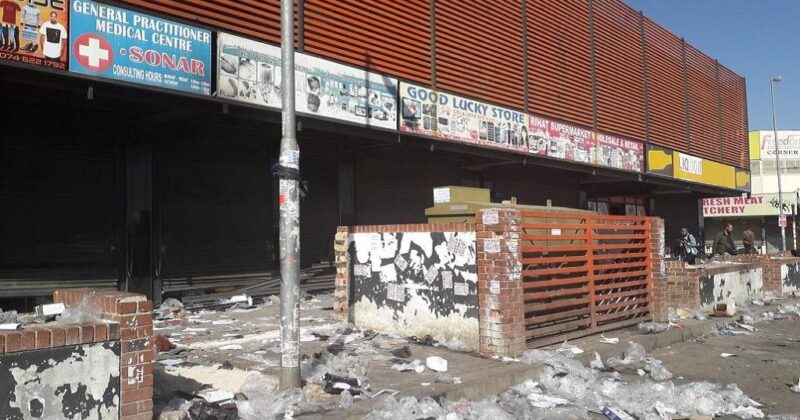Global Issues
The Madness in South Africa -By Olusegun Adeniyi
Given the disposition of the South African authorities to the violence against our people, my fear, over the years, has always been that a day could come when opportunistic mobs in Nigeria would respond in kind by attacking South African businesses in our country.

That several black South Africans are frustrated by their plights in the country they call their own is not in doubt. It is also understandable given that whoever controls the economy holds the real lever of power. But they cannot continue to hold Nigerians and other foreigners responsible for their woes. And, as it is now becoming increasingly clear, allowing mob to dictate the tone of engagement in international relations is very dangerous.
Whatever may be their justifications, there is a pattern to the madness in South Africa. The violence in April 2015, for instance, followed an incitement by Zulu king, Goodwill Zwelithini who said: “We are requesting those who come from outside to please go back to their countries. The fact that there were countries that played a role in the country’s struggle for liberation should not be used as an excuse to create a situation where foreigners are allowed to inconvenience locals” This time, it is the Deputy Minister of Police, Bongani Mkongi, who is reeling out false and irresponsible statistics to justify mob actions and why they “cannot surrender South Africa to foreign nationals.”
The South African authorities are complicit in the violence against foreign nationals not only by the divisive rhetoric of their leaders (including unfortunately President Cyril Ramaphosa) but also because their security agencies have more or less always looked the other way. A 2007 report of the Africa Peer Review Mechanism (APRM) of the African Union warned on the danger of not doing something to curb the rising Xenophopic attacks against fellow Africans. “Despite the solidarity and comradeship between black South Africans and the rest of the people of sub-Saharan Africa during the decades of struggle against apartheid and for liberation, foreigners, mostly of African descent, are being subjected to brutality and detention”, the report stated, before admonishing that efforts be made to address the problem.
Given the disposition of the South African authorities to the violence against our people, my fear, over the years, has always been that a day could come when opportunistic mobs in Nigeria would respond in kind by attacking South African businesses in our country. Sadly, that day is already here. On Tuesday, a friend shared with me what he witnessed at the Novare Mall (which houses Shoprite) in Sangotedo, Lagos on his way home from work. “I was shocked by the spectacle of hoodlums carting away things from Novare Mall. Some had the items on their head, some were using wheelbarrow and others, tricycles. My concern is that the overwhelming majority of people who work there are Nigerians. They are going to lose their jobs. Nigerian investors are going to be seriously affected since the outfit is a franchise. Besides, there are several shops and businesses there that have nothing to do with South Africa. They are being ruined.”
Sadly, these are the kinds of collateral damages that come with mob actions. To worsen matters, similar protests against South Africa are now spreading across Nigeria. Yesterday, the Novare Mall along the airport road in Abuja was besieged by hoodlums with several vehicles stuck in traffic on the expressway for hours. Policemen drafted in had a hectic time battling the miscreants who came armed with stones, daggers and cutlasses.
I hope that the authorities in









